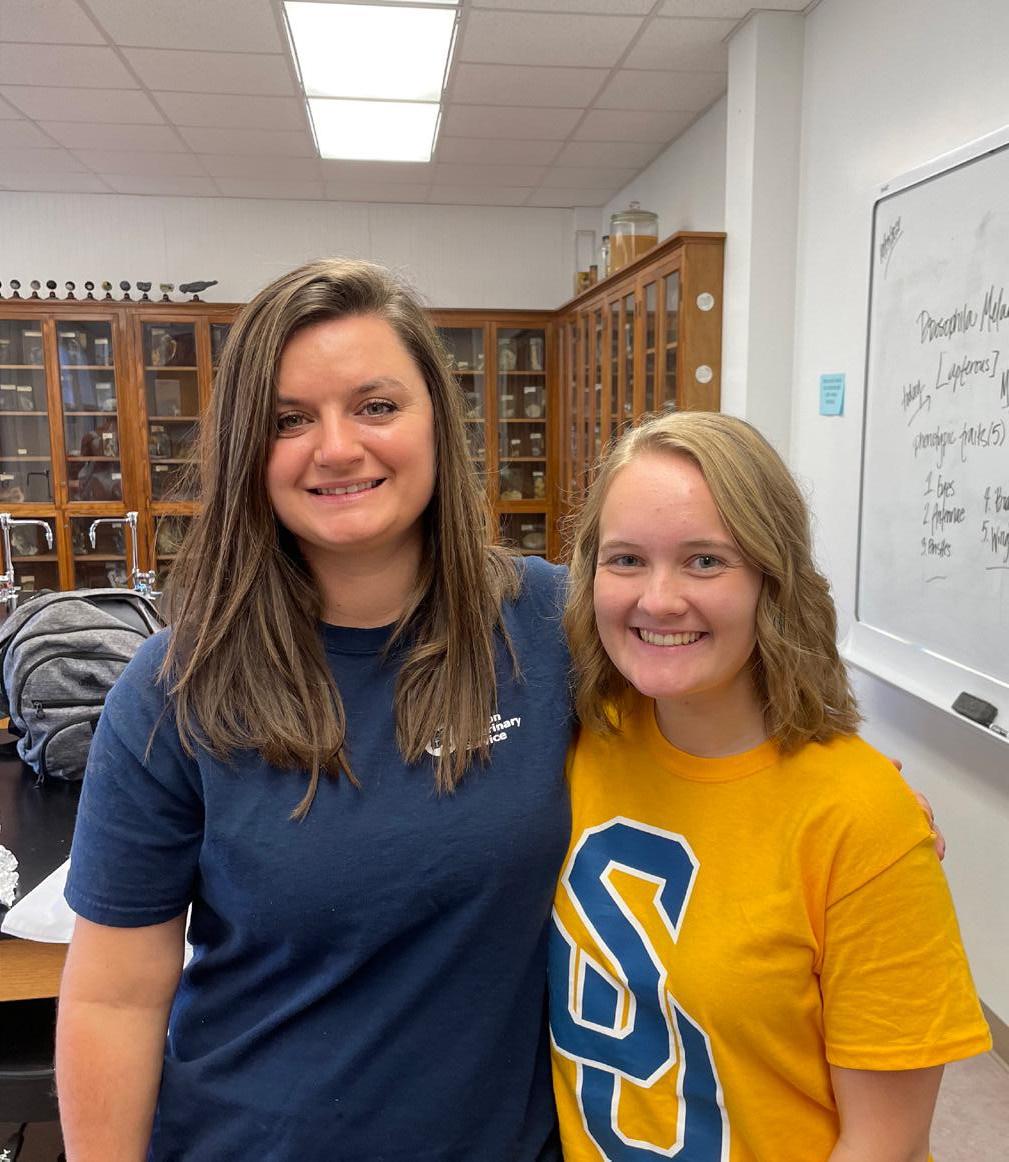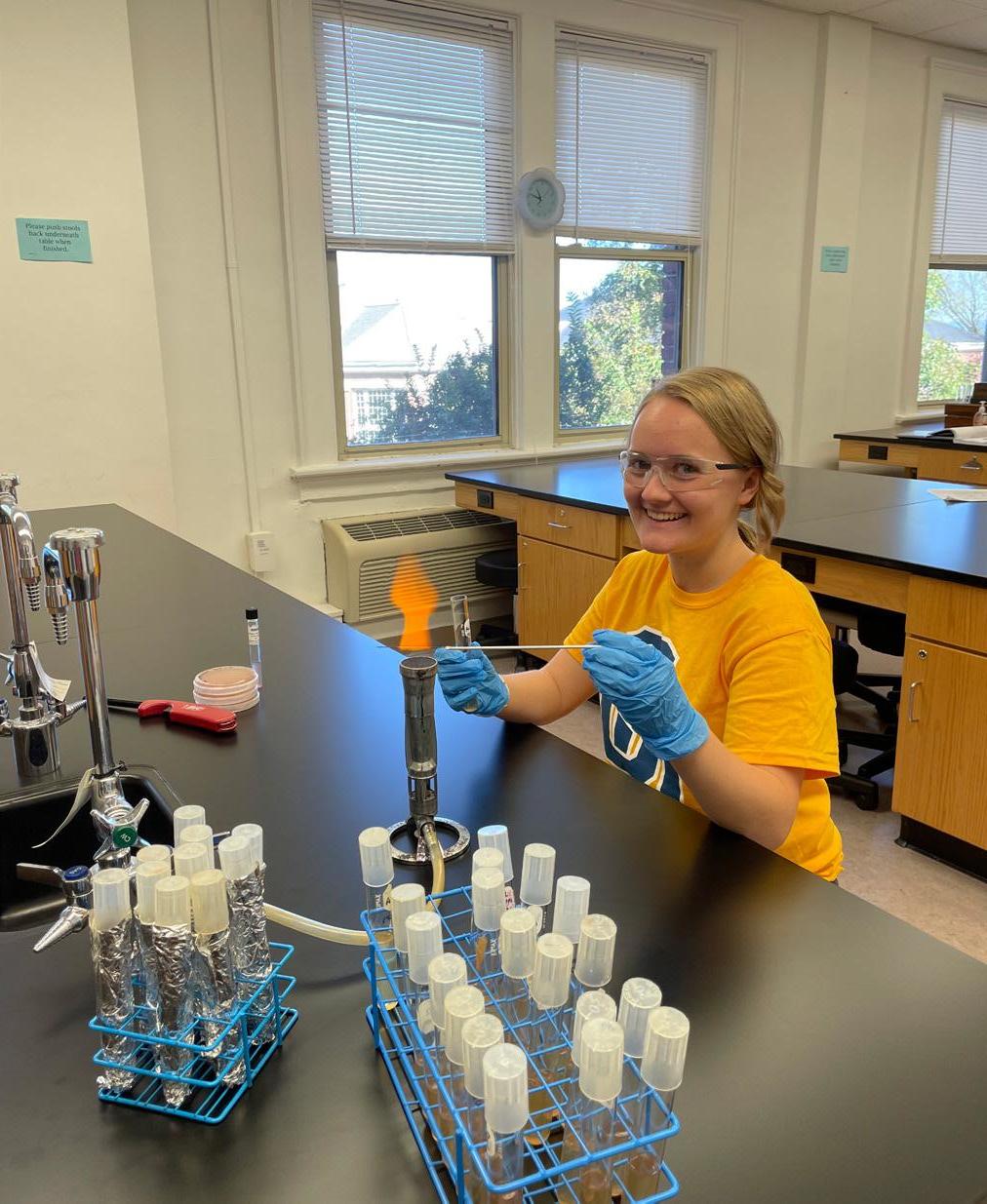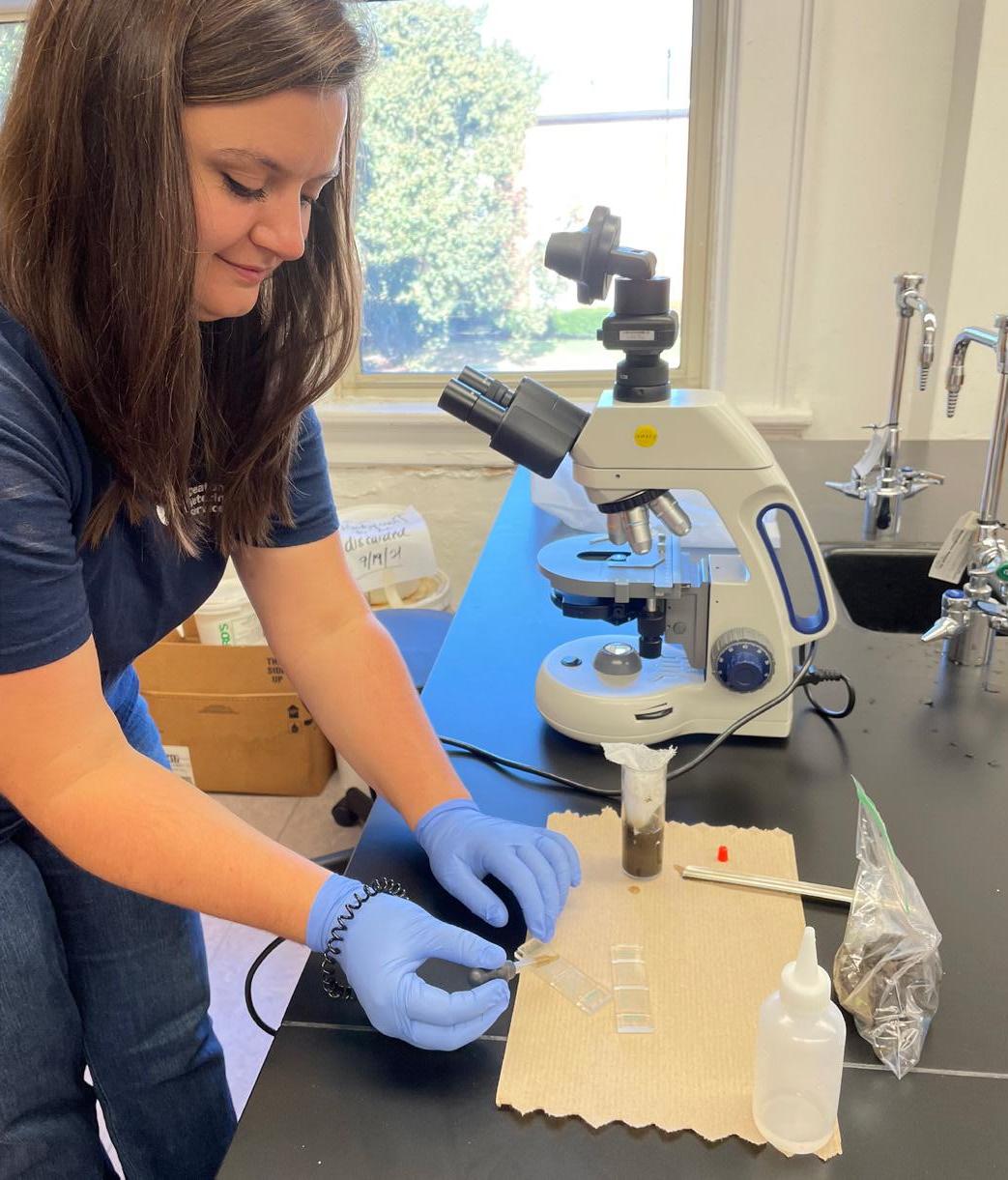
4 minute read
Science Majors Find Success in Their Field
from The Hawkeye
Science Majors Find Success in Their Fields
Story and photos by Andrea Medel
Advertisement
Allie Walker, is a senior, biochemistry major with minors in mathematics and chemistry. After graduation, Walker will attend the Harrison
School of Pharmacy at Auburn University to obtain a Pharm. D. degree. Upon completion of pharmacy school, Walker desires to work in a hospital/clinical setting with a focus on pediatrics and also compounding medications.
Her aspiration is to serve others to the best of her ability. “I was blessed to receive the education I have; therefore, I want to give back to others by using my knowledge to serve others,” said Walker. Currently, Walker is doing her senior capstone project on testing the adaptive resistance of serratia marcescens (gram negative bacteria) against zinc oxide nanoparticles. The research consists of growing cultures of serratia marcescens in a nutrient broth and placing nanoparticles in some of the test tubes. At specific time intervals, Walker uses a spectrophotometer to measure the absorbency level of each test tube. From the
Latasha Corntassel (left), a senior biology major and Allie Walker, a senior biochemistry major, credit Shorter’s science faculty with their success. Allie Walker, a senior biochemistry major, uses aseptic technique to inoculate S. marcescens into nutrient broth for the purpose of growing the bacteria.

absorbency measurement, she can get a colony count of the bacteria in each test tube and determine the effect of the zinc oxide nanoparticles. According to Walker, she chose this particular experiment for her research because “I have a fascination with bacteria and health.” Through this research, she hopes to learn more about the resistance of bacteria, as well as the ability to use other products besides antibiotics to combat the resistance of bacteria. Walker is especially grateful to the faculty members at Shorter who have guided her to this point in her college career. According to Walker, the faculty in the College of Natural Sciences and Mathematics, in particular, have helped her to overcome all the challenges, personal doubts, and anxieties she experienced. In particular, Walker relied on Dr. Clint Helms, Dean of the College of Natural Sciences and Mathematics,
Dr. Daniel Clayton, Associate Professor of Chemistry, and Andrea Moss, Assistant Professor of Biology. Clayton, Walker’s advisor, helped to prepare her for scientific battles in research and studies. In the same way, “Dr. Helms is an amazing dean who has been there for me through challenging courses, stressful tests, and more,” said Walker. Blankenship is a wonderful encourager and always finds a way to make Walker smile. Overall, the entire faculty has supported and prepared Walker for what is ahead. Another senior in Shorter’s science area is Latasha Corntassel whose major is biology with a minor in chemistry. After graduation, Corntassel plans to attend veterinary school and hopes to be accepted into Auburn College of Veterinary Medicine. Later, she wants to own a mobile mixed animal practice with a focus on large animal medicine. In addition, Corntassel, along with her family, are establishing a vegetable farm on their land in Gaylesville, Alabama. According to Corntassel, “Our long-term goal is to establish the practice on the farm and eventually raise livestock as well.” One of her family’s main goals is to create an environment where people can learn animal husbandry, reconnect to the land, and practice sustainable veterinary medicine and farming. In addition, Corntassel wants to serve Christ through a non-profit organization called Christian Veterinary Mission. These veterinary professionals travel to countries and communities in need of veterinary services and while there, proclaim the good news of Jesus Christ to those they serve. Corntassel focused her research on equine parasitology due to the growing concern for anthelmintic resistance. Because anthelmintics have been overused and are showing early signs of resistance, Corntassel plans to practice sustainable parasite control protocol in her future practice. College can be challenging and having an amazing faculty can help a lot. Corntassel explained that the faculty and students in the science departments have become like her family. She credits Andrea Moss, Assistant Professor of Biology, Dr. Paul Bond, Assistant Professor of Biology, Dr. Clint Helms, Dean of the College of Natural Sciences and Mathematics, and Dr. Daniel Clayton, Associate Professor of Chemistry, for their dedication in preparing for her future career. All have helped Corntassel in pursuing her profession and in developing her into an independent researcher and scientist. “They have all been a source of incredible support and encouragement.” Additionally, Corntassel is grateful to Dr. Jill Goad, Assistant Professor of English, who helped her with her essays for her veterinary school application. “She was always there to answer all my questions and advise me on the formatting of my essays.” Because of all the support of the Shorter faculty, Corntassel feels very confident she will be accepted into veterinary school. Both Walker and Corntassel hope to not only pursue their respective careers after graduation, but to also serve others through their careers.

Latasha Corntassel, a senior biology major, counts the number of eggs per gram using a Modified McMaster slide.










